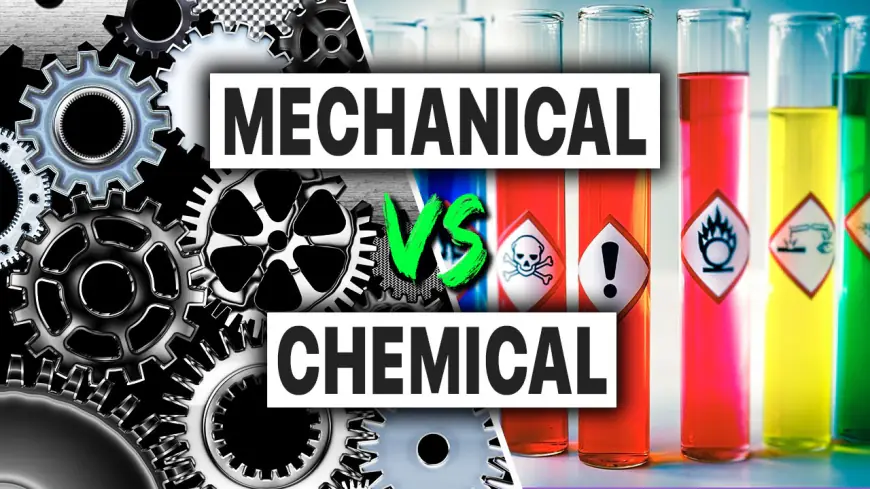Which is better for you chemical or mechanical engineering in 2024?
Chemical and Mechanical Engineering in 2024. Understand the career prospects, core principles, and industries for aspiring engineers. Which path is right for you?

Chemical vs. Mechanical Engineering in 2024
Choosing a career in engineering is an exciting endeavor, but with numerous disciplines to consider, it can be challenging to pick the right path. In 2024, both Chemical and Mechanical Engineering offer unique opportunities and challenges. This article explores the differences and similarities between these two fields to help aspiring engineers make informed decisions about their future.
Chemical Engineering
Chemical Engineering is a branch of engineering that deals with the design, development, and optimization of processes used to transform raw materials into valuable products. Here are some key aspects of Chemical Engineering in 2024:
- Process Optimization: Chemical engineers focus on optimizing processes in industries such as petrochemicals, pharmaceuticals, and manufacturing. They work on creating efficient and sustainable methods for production.
- Chemistry and Physics: The discipline heavily relies on principles of chemistry and physics to understand and manipulate chemical reactions and physical transformations of matter.
- Environmental Considerations: In 2024, chemical engineers play a significant role in designing processes that are environmentally friendly and sustainable, addressing issues like waste reduction and clean energy production.
- Career Opportunities: Graduates in Chemical Engineering have opportunities in various sectors, including energy, food production, and materials science, as well as in research and development roles.
Read Also: Difference between JEE and JEE Advanced
Mechanical Engineering
Mechanical Engineering is a broad discipline that focuses on the design, development, and maintenance of mechanical systems and devices. In 2024, here are some key aspects of Mechanical Engineering:
- Design and Innovation: Mechanical engineers are known for their involvement in designing products and systems, such as automobiles, machinery, and consumer goods. They often drive innovation through new designs and technology.
- Physics and Mathematics: Mechanical engineering relies on principles of physics and mathematics to analyze and solve complex mechanical problems. This includes understanding motion, stress, and fluid dynamics.
- Diverse Industries: Mechanical engineers have opportunities in a wide range of industries, including automotive, aerospace, energy, and robotics. They work on projects that impact our daily lives.
- Career Opportunities: Graduates in Mechanical Engineering often find job opportunities as design engineers, project managers, and research engineers, among other roles in various industries.
Chemical Engineering vs. Mechanical Engineering: Key Differences
While both fields are integral to engineering, they have distinct differences:
- Focus: Chemical Engineering focuses on chemical processes and reactions, whereas Mechanical Engineering deals with mechanical systems, machines, and physical forces.
- Core Principles: Chemical Engineering is deeply rooted in chemistry and physics, while Mechanical Engineering leans more on physics and mechanics principles.
Industry
Because mechanical and chemical engineers typically specialize in two distinct disciplines of engineering, the industries they work in can differ. Both engineers can fulfill roles in the manufacturing industry, but mechanical engineers may be more likely than chemical engineers to work in industries like:
-
Aerospace
-
Defense
-
Construction
-
Utilities
-
Automotive
-
Consumer goods
-
Marine
Chemical engineers, in contrast, often work in industries like:
-
Pharmaceuticals
-
Health care
-
Oil and gas
-
Food processing
-
Biotechnology
-
Safety
-
Environmental health
Chemical Engineering vs. Mechanical Engineering: Similarities
Despite their differences, these engineering disciplines share common traits:
- Engineering Principles: Both fields require a strong foundation in engineering principles and problem-solving skills.
- Math and Physics: A solid understanding of mathematics and physics is crucial for success in both fields.
- Innovation: Engineers in both disciplines contribute to innovation and advancements in technology.
Conclusion
In 2024, aspiring engineers face a critical decision when choosing between Chemical Engineering and Mechanical Engineering. Your choice should be guided by your interests, career goals, and the specific challenges and opportunities each field presents. While Chemical Engineering revolves around chemistry, sustainability, and process optimization, Mechanical Engineering offers a broad spectrum of design and innovation opportunities. Ultimately, your decision should reflect your passion for the field and align with your vision for a rewarding engineering career.
Read Also:










































